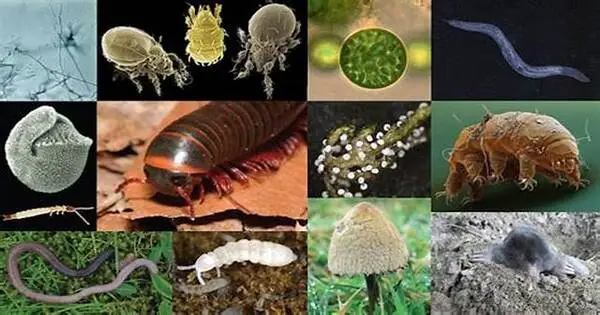Soil zoology is a field of zoology that studies animals that live in the soil. It is the study of creatures that live completely or partially in the soil (soil fauna). These creatures, known collectively as soil fauna, serve important roles in soil ecosystems and contribute to a variety of soil activities.
Soil zoologists research the diversity, behavior, ecology, and interactions of these creatures in the soil environment. Mercury Ghilarov pioneered the field of study in Russia in the 1940s. Ghilarov discovered inverse connections between soil organism size and population size. He also proposed that soil had water, air, and solid phases and that soil could have served as a transitional environment between aquatic and terrestrial life. The phrase was first used in the English-speaking world at a conference of soil zoologists presenting their research at the University of Nottingham, UK, in 1955.
Key components of soil zoology include:
- Microarthropods: These are tiny arthropods such as mites, springtails, and other small insects. They are important in nutrient cycling and decomposition processes.
- Nematodes: Soil nematodes are microscopic, worm-like animals that can be both beneficial and harmful. Some nematodes are involved in nutrient cycling, while others may be plant parasites.
- Earthworms: Earthworms are perhaps the most well-known soil organisms. They play a crucial role in soil aeration, nutrient cycling, and the breakdown of organic matter.
- Insects: Various insects, both larval and adult forms, inhabit the soil. Some are decomposers, while others are predators or herbivores.
- Protozoa: These are single-celled organisms that contribute to nutrient cycling by feeding on bacteria and other microorganisms.
Soil zoology is concerned with the interactions of various soil species and their effects on soil structure, fertility, and general ecosystem health. To study the composition and function of soil fauna communities, researchers in this subject employ a variety of methodologies, including field surveys, laboratory experiments, and molecular biology technologies. Soil zoology is essential for sustainable agriculture, ecosystem management, and conservation activities.















